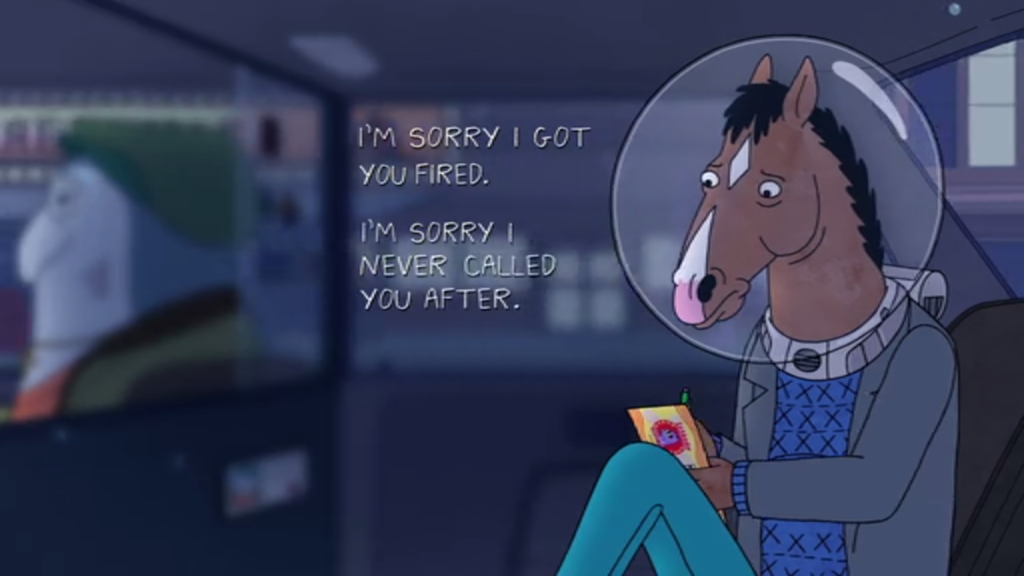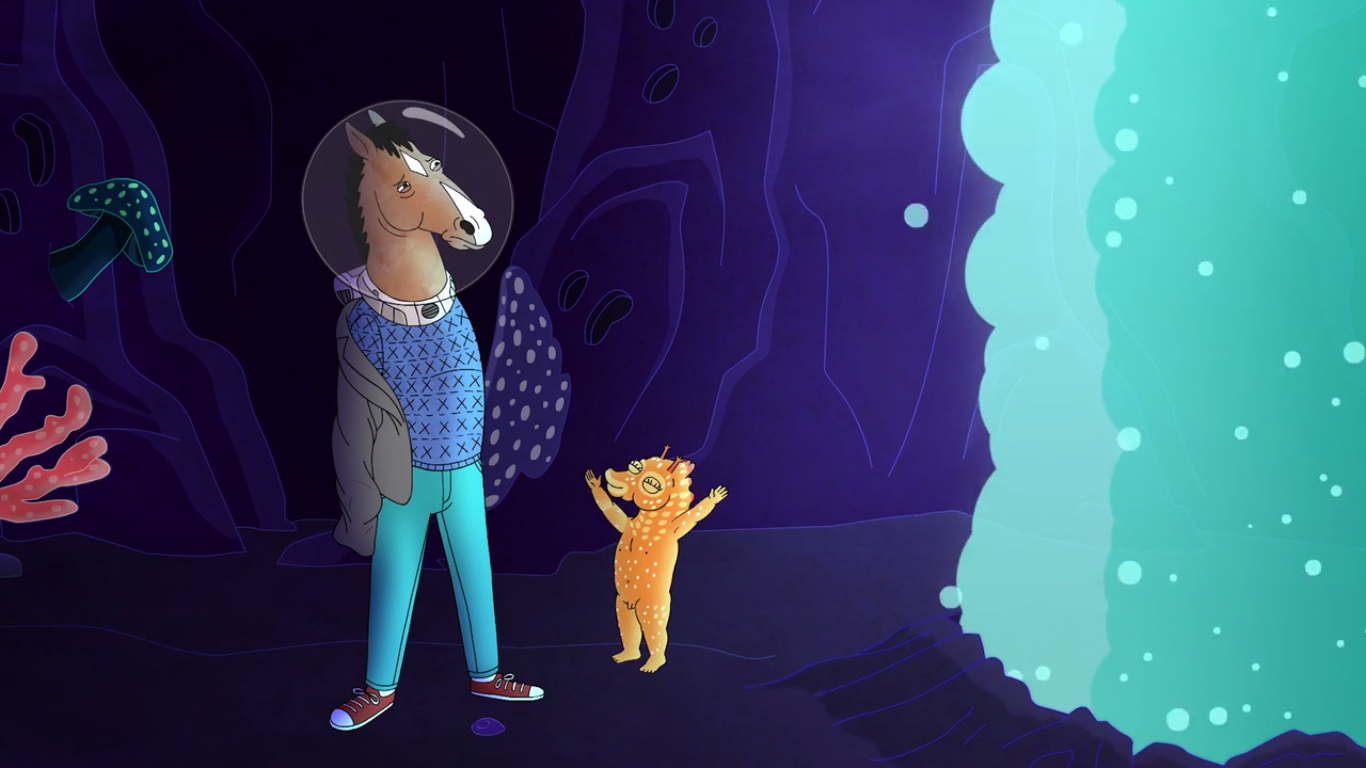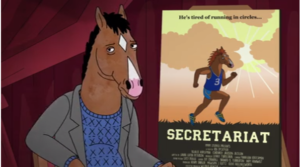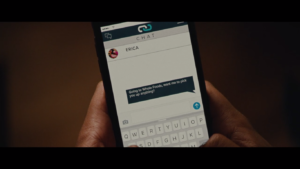There have been certain television episodes over the past 15 or so years that have come to define just how much of a daring art form television became during the new ‘Golden Age’ that began back in the late 90s and has continued to be during the current era of ‘Peak TV’. These episodes go outside of what we traditionally expect from a certain genre and give the viewer an indication that they are watching something more than just a show about gangsters or drug dealers (or alcoholic horses) and make us widen our boundaries of expectation from television. These episodes are almost always polarising amongst the fans of the programs in question. Depending on what you want from your viewing experience, Tony Soprano’s extended dream sequences will either have been amongst your favourite things the show ever dared to do or will be indicative of everything that frustrated you most about a show that never fully committed to the potential extravaganza of murder that some wanted it to be. Likewise, Walter White and Jesse Pinkman spending an entire episode chasing a fly around their lab is frequently seen as either one of the most loved or most hated episodes of Breaking Bad depending on whether you were watching that program as an exploration of the slow moral decay of a ‘good’ man or as an action show about a drug dealer. Neither of these types of viewers are necessarily ‘wrong’ about what they want to see from their favourite programs, however, I must admit that I personally am almost always a big fan of these episodes (even when the execution may not be perfect) because the creative boldness on display shows a willingness to aim high and risk the potential failure that comes with taking such a chance. So, if you watch BoJack Horseman solely for the comedy value in its biting one liners and rampant animal puns, then maybe this episode won’t rank highly on your own personal list of favourite episodes. However, at this point in the show’s run it seems clear that Raphael Bob Waksberg and his writers are in the business of pushing the boundaries of BoJack as wide as possible in terms of genre on a regular basis. Following on from the last episode’s noir theme, this episode again feels like a throwback to earlier times with it taking on the guise of a silent short movie along with some nods to the old animation style of early Disney. This spectacular episode furthers the show’s claim as one of the most unique and engaging shows currently airing and the boldness of the creative team’s vision suggests it is making a real claim for its place amongst the all-time greats too.
It is worth going into greater detail on just how influential and important the work of The Sopranos was on this type of boundary-expanding episode as there are connections to be made between the two programs in regard to why the BoJack creators have given us this episode at this point in their run. As I’ve already briefly mentioned, The Sopranos famously aired episodes dealing heavily with Tony Soprano’s mental state that confounded some of its audience at least once a season and it began this trend with season 1’s episode ‘Isabella’ in which Tony interacts throughout with a beautiful Italian woman who is eventually revealed to be entirely a figment of his imagination. This was the first time that the show made it abundantly clear just how integral Tony’s continuing mental fragility would be to the plot. As time went on and The Sopranos influence grew greater they would take the audience further and further from its comfort zone with this type of episode. By the second season finale, ‘Funhouse’, the writers were confident enough in this tactic that a season long plot line was resolved by Tony gaining the insight he needed to solve a life-or-death problem from a talking fish he encounters during fever dreams induced by food poisoning. By the time of the fifth season’s ‘The Test Dream’ showrunner David Chase and his writers had garnered enough creative goodwill that they had the nerve to run a 20 minute long unbroken dream sequence in perhaps the single most famous and polarising act the show ever attempted (a certain diner scene, notwithstanding). The first half of season 6 then kept fans hanging in limbo for two entire episodes as a comatose Tony lives through a purgatorial state in which he is an average nobody in an identity crisis.
Importantly, all of these events throughout the show’s history were not there as creative overindulgence, to slow down storylines or to toy with fans (despite what some believe about David Chase’s apparent disdain for his audience). As infuriating as they may have been to sit through for certain viewers, at the end of all of these sequences Tony (and, more importantly, the audience) gained some greater insight into his problems, or who he was as a person. This willingness to look into Tony’s deepest psyche on regular occasions was what set The Sopranos apart from any other previous exploration of a ‘gangster’ on television or in film. Tony’s dreams were the one place where he couldn’t put on an act for anybody. He was never that vulnerable even in Dr Melfi’s office. Likewise with BoJack, when you take away his ability to employ the defensive mechanisms that we have watched him use for 27 previous episodes (such as pushing people away with sarcastic retorts and drinking away his problems for the short term) it forces him to act in a way that the audience, and BoJack himself, isn’t familiar with. Therefore, in these episodes that remove everybody from their comfort zones we all learn something new about our protagonists.
After the opening credits BoJack is immediately thrust into an unfamiliar state when he arrives at an underwater film festival where faces a language barrier and is unable to communicate verbally with anybody for the duration of his stay there. It is no coincidence that a hotel is the location for this story to begin in. The slightly odd feeling of looking-like-home-but-not-quite-being-home is integral to the slight shift in balance that we feel when we are homesick and unable to speak the language of those around us. Hotels have beds and bathrooms and all of the other things in place that are designed to make the room feel homely, but they are always inevitably not quite like home and exist in a kind of disturbing ‘uncanny valley’. (Returning briefly to The Sopranos, it is no coincidence that ‘The Test Dream’ also featured Tony Soprano having such vivid dreams whilst staying in a hotel. Similarly much of Tony’s comatose purgatory of season 6 was set in a hotel. Fellow HBO program The Leftovers also recently featured episodes set in a hotel whilst its protagonist floated in a dream/purgatorial state; again, not coincidently). BoJack’s sobriety adds to his feeling of uneasiness due to his usual constant state of inebriation. He can’t use his drunkenness as a shield against the world and likewise, he can’t gain the confidence from his drunkenness to walk over to Kelsey in the hotel and apologise for what happened on the set of Secretariat. BoJack tries to write a note apologising to her but fails every time due to the lack of sincerity in the messages. It takes the experience he has later in the episode to mature him to the point where he is able to write a real apology to Kelsey, even if she never ends up seeing it. If BoJack is able to talk, drink and take drugs at the beginning of this episode then there is no way that he eventually gains the clarity to realise what he needs to say to Kelsey.
The adventure that then makes up the bulk of the episode feels like something out of a silent movie, or perhaps something from the very early days of Disney where dialogue could not be relied upon to tell a story so the visuals do all the work of explaining the plot, making the jokes and moving the audience. The story itself works very simply (and, again, feels like a plot that wouldn’t be out of place in a classic Disney movie): child loses its family, older stranger finds child, after initial mistrust they bond, have the escape danger and eventually the child is returned home. The magic of the episode comes from how the story gets told, with much of it working as elongated chase scenes where BoJack and his companion have to escape their tormentors whilst navigating this underwater course that BoJack is unfamiliar with. Much of this section was clearly very well choreographed and the final outcome is that of a triumphant dance through a beautiful underwater world, where our heroes get to escape at the final seconds with BoJack getting a moment to be Superman, flying away as the taffy factory explodes behind them.
By the time the baby is home, the two have built up quite a relationship with one another. But, once the baby is returned to his father – a more capable adult who can easily provide all of the care and safety that BoJack was unable to provide for the baby – BoJack is no longer needed and is quickly forgotten. BoJack seems surprised by just how much this day has affected him. He grows a lot throughout this episode and yet he doesn’t really get the reward from it that he may have been expecting. The father offers BoJack to join them for dinner or to pay him but this is not what BoJack wants. He doesn’t want to interfere on their lives; he wants his own important things to care about. That may not necessarily be a child or family of his own, but he realises for the first time that he doesn’t want to be an outsider looking in on happy people anymore. This perhaps is the first step towards BoJack realising that winning the Oscar for Secretariat that he currently craves so much will not bring him the joy he wants it to.

During the Secretariat after party BoJack briefly finds solace in alcohol suppositories but, in a big moment for him, is able to tear himself away from the empty revelry of the showbiz party and find Kelsey with a newly written note that acknowledges his fault in what happened to her during Secretariat. When he delivers the note to Kelsey, however, it has already washed away under the water and is useless. After BoJack realises such a huge amount about himself in this episode, no one else around him seems to be paying enough attention to him to notice it. To Kelsey, the washed away note perhaps shows BoJack to be the same as he has ever been: underprepared and careless about his actions to the point that they don’t matter. For BoJack’s growth in this episode to mean anything he has to realise how much value there is in the internal reward alone. As we have seen with BoJack before, it is worryingly unlikely that once he returns to land and gets back to his creature comforts of ‘Hollywoo’ that any of this will continue to resonate for him.



